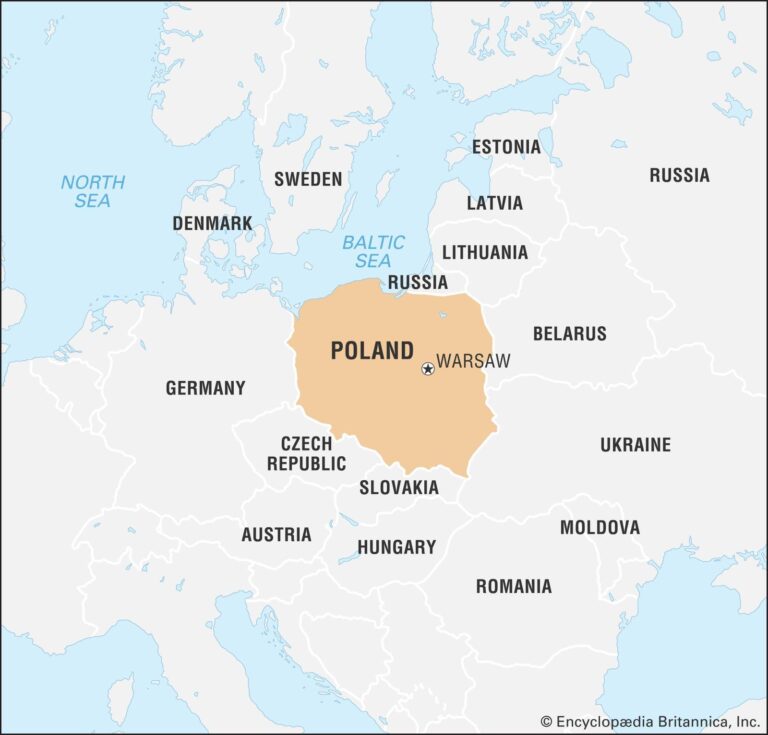Poland is reportedly preparing to implement border controls with Germany in response to recent increases in migrant returns, according to government sources. The move comes amid growing concerns over cross-border migration and rising tensions between the two neighboring countries. Officials suggest that enhanced security measures could be introduced “very likely” in the near future, aiming to manage the flow of migrants and maintain order along the shared frontier. This development marks a significant shift in Poland’s border policy and raises questions about the broader implications for European migration dynamics.
Poland Prepares to Reinstate Border Controls Amid Rising Migrant Returns from Germany
Polish authorities have announced that they are closely monitoring the increase in migrant returns from Germany and are preparing to reintroduce border controls. This move aims to manage the rising flow of individuals being sent back, ensuring security and orderly processing at critical entry points. Officials emphasize that the reinstatement would be a temporary but necessary measure, reflecting heightened coordination between border agencies and local law enforcement to cope with the evolving situation.
The potential border implementation is expected to involve:
- Enhanced surveillance and patrolling along key crossing areas
- Deployment of additional border officers during peak return periods
- Improved infrastructure to facilitate more efficient migrant registration and health checks
- Close cooperation with German counterparts to streamline return operations
| Key Border Points | Current Daily Returns | Planned Increase in Staff |
|---|---|---|
| Frankfurt (Oder) | 120 | +40% |
| Åšwiecko | 90 | +35% |
| Zgorzelec | 60 | +25% |
Impact of Potential Border Measures on Poland Germany Relations and Regional Mobility
The announcement of possible border controls by Poland in response to migrant returns signals a notable shift in the traditionally open and cooperative dynamic between Poland and Germany. Experts suggest this move could introduce friction in bilateral relations, as long-standing agreements promoting ease of cross-border movement face new hurdles. The potential controls are set to complicate not only diplomatic ties but also economic cooperation, given the high volume of daily commuters and trade exchanges between the two nations. Polish officials stress that such measures are primarily a response to migratory pressures, but German authorities express concern over the impact on mutual trust and regional stability.
The introduction of border controls threatens to disrupt regional mobility patterns that have underpinned the growth of the so-called “Euroregion” on both sides. Key consequences are anticipated in areas such as:
- Daily Commuting: Thousands of workers cross the border for employment, risking longer travel times and stricter checks.
- Trade and Logistics: Transport of goods may face delays, increasing costs for businesses reliant on quick cross-border supply chains.
- Tourism and Cultural Exchange: Reduced spontaneous travel could impact local economies tied to cross-border tourism.
- Emergency Services Coordination: Joint operations and medical aid in border regions might face operational bottlenecks.
| Sector | Potential Impact | Estimated Delay | |||||||||||||
|---|---|---|---|---|---|---|---|---|---|---|---|---|---|---|---|
| Commuter Traffic | Increased queue times, ID checks intensified | 15-30 minutes | |||||||||||||
| Experts Advise Coordinated EU Approach to Manage Migrant Flow and Preserve Cross-Border Cooperation
As tensions rise over increasing migrant movements, experts emphasize the necessity of a unified strategy across the European Union to effectively manage these flows while maintaining the essential cooperation between neighboring countries. Poland’s consideration to impose border controls with Germany amid the recent wave of migrant returns serves as a stark reminder of the potential disruptions unilateral measures can cause to the sensitive fabric of cross-border relations. Analysts argue that fragmented approaches risk escalating diplomatic friction and undermining the broader goals of free movement and collective security within the Schengen Area. Key recommendations from the expert community include:
To ConcludeAs Poland moves closer to implementing border controls with Germany amid growing concerns over migrant returns, the development marks a significant shift in the dynamics of cross-border relations within the European Union. Authorities have emphasized the need to manage migration flows more effectively, while critics warn of potential disruptions to trade and travel. The situation remains fluid, with further announcements expected in the coming days as both nations navigate the complex challenges posed by migration policy and border security. |




